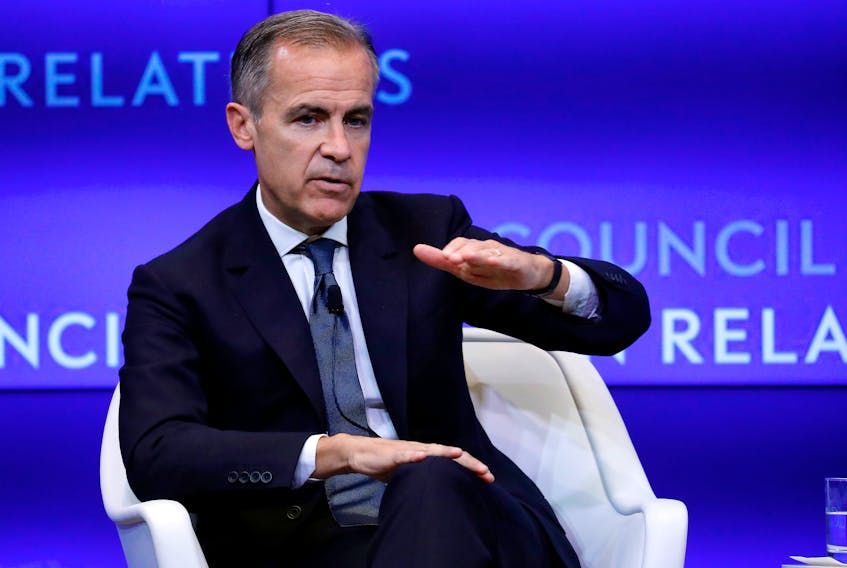By David Milliken and Huw Jones
LONDON (Reuters) - Bank of England Governor Mark Carney said on Tuesday that currency dealers should face the same tough market-abuse rules that govern share and bond trading, adding to scrutiny of London's $5 trillion-a-day foreign-exchange market.
Carney also struck a sanguine tone on hedge funds and other investors taking bets on the value of the pound as the Oct. 31 Brexit deadline nears, arguing that the stability of the financial system was the BoE's main concern.
The global spot foreign exchange market, dominated by the London, is unregulated, unlike the tighter restrictions placed on those who trade shares and bonds.
"They do not apply to the spot FX (market), and in our judgement they should," Carney told a panel of lawmakers.
The European Union's European Securities and Markets Authority has just opened a public consultation on whether spot foreign exchange trading should come under EU market-abuse rules.
ESMA flagged difficulties in regulating such a huge market and suggested that a new global code of conduct aimed at cracking down on abuses should be given more time to bed down.
In Britain, sharp moves in the pound in the lead-up to Brexit have prompted talk among politicians that currency speculators are having undue influence.
Former UK finance minister Philip Hammond said last month that hedge fund backers of Prime Minister Boris Johnson could profit from a no-deal Brexit.
Hedge funds sometimes sell assets like currencies, stocks and bonds that they do not own, hoping they can cover their positions after the price falls, pocketing the difference as a profit.
Carney said the BoE's main focus was on the core of the financial system -- making sure that major banks were ready for Brexit and that financial markets function well, whatever the moves in asset prices.
"We shouldn't be addressing the issue in terms of (whether) there would be some financial institutions and maybe some individuals associated with those financial institutions who have correctly predicted, or got lucky, on what direction sterling ends up going," Carney said.
"They will possibly make a lot of money, but it won't cascade into the core of the system and it won't amplify it into an impact onto the real economy."
(Additional reporting by Estelle Shirbon, writing by Andy Bruce, editing by Larry King)









